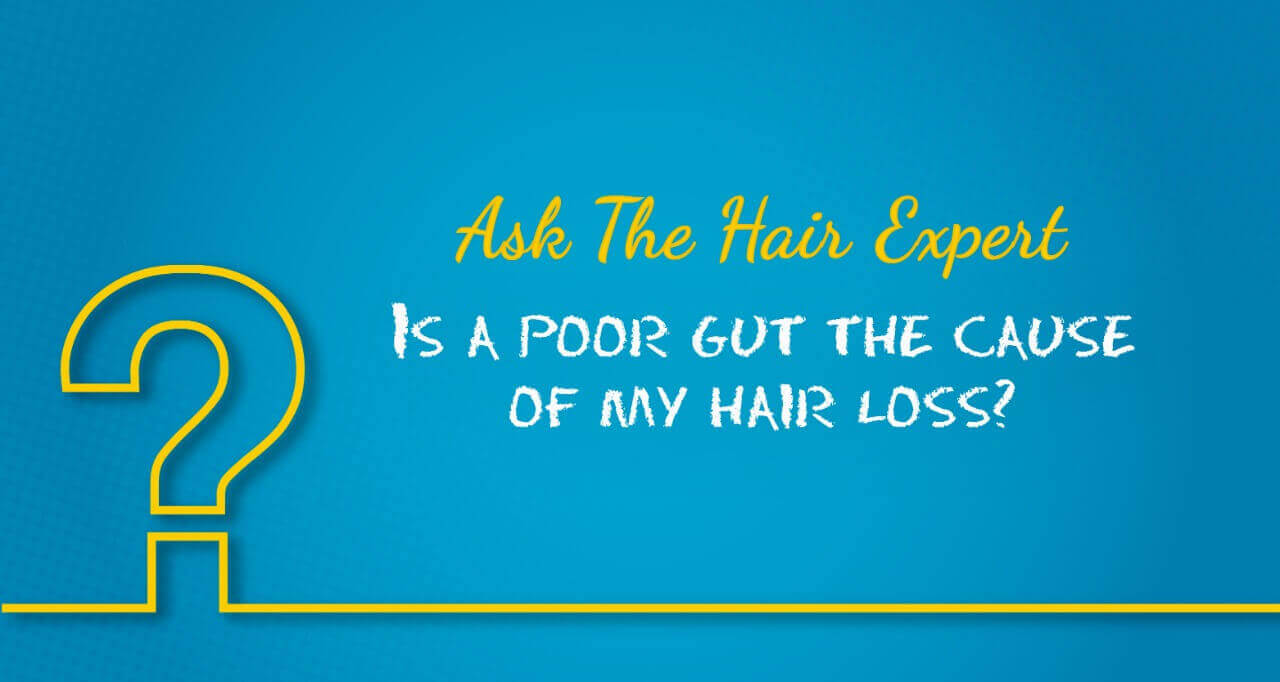‘Why is my hair is falling out in clumps?’
‘Am I balding at just one spot on my head?!’
‘Do I have Alopecia?!!’
None of these are questions you want to be asking yourself. But at times, life does pose us with questions that we don’t really want to confront, isn’t it?
Thanks to much material doing popular/viral rounds these days, Alopecia is now a known term and a topic of discussion. Such wasn’t the case even a few years back. The awareness being generated and the questions coming forth is a positive trend because this means that people are open to speaking about it, addressing this disorder (which is more common than we would wish), seeking professional help (as they should) and look at resolving concerns.
We have off lately received a fair deal of questions on the topic. Something to do with the movies in recent times?! Perhaps! In any case, here we are again, with the ‘Ask the Hair Expert’ series, to give you some answers and clarity on Alopecia.
You asked: ‘Can it be cured? How do I detect if I have Alopecia? What causes it? Can I grow hair back if I have alopecia?’
Here’s the answer from the Hair Experts.
Alopecia is an auto-immune disorder. And as with all auto-immune disorders, it can be treated and controlled. While it gets ‘cured’, so to speak, in some, there are some others who experience a relapse.
Trichology offers many solutions and treatments to handle Alopecia effectively on a case-to-case basis.
Get to the root of the problem and find your solution with the help of a Trichologist!
Let’s first have a quick overview of what Alopecia is and answer your questions on what the known causes are and what the usual symptoms are. We will then move on to discuss the possible solutions.
What is Alopecia?
The term Alopecia refers to hair loss. Alopecia is an indication of your susceptibility towards autoimmune disorders. It attacks the hair follicles. It also occurs when one is suffering from other autoimmune diseases such as psoriasis, thyroid disorders and eczema-like skin conditions which are of similar nature.
While on it, what’s an autoimmune disease? It is a condition in which your immune system mistakenly attacks your own body. Normally, your immune system clearly differentiates between the good healthy cells and harmful foreign bodies.
However, with this condition, it loses this ability to differentiate and attacks healthy cells. While some autoimmune disorders attack a particular organ or part, some affect the whole body. Now, why the immune system would misfire like this in a particular person has been and continues to be a subject of research!
Alopecia can be of various types. The intensity or nature of hair loss changes with each type. It can be hair loss in patches on the scalp or even complete hair loss on the scalp. There are cases when one experiences complete body hair loss. Whatever the kind, it needs medical, professional help.
Alopecia Areata, Alopecia Totalis, Alopecia Universalis, Scarring Alopecia are some of the types of the disorder, each having specific indications, where the hair follicles are attacked and there is tremendous unpredictable hair loss.
If you have noticed hair falling off in clumps or small odd bald patches on your scalp, you are likely to be suffering from Alopecia Areata, perhaps the most common form of Alopecia observed. It is also referred to as spot baldness. It is characterised by hair loss creating distinctive bald patches.
Alopecia Areata should be distinguished from androgenetic alopecia or what is commonly known as male pattern baldness. Do read our pages on the topic for more clarity on MPT and FPT.
While it may start with small patches, the hair loss can stay patchy or lead to complete loss of scalp hair, depending on the type of Alopecia one is suffering from. While it is not a condition that makes people ‘sick’, it does cause a lot of trauma – the emotional aspect of losing hair so. And the societal pressure that comes with it.
What causes Alopecia?
As mentioned above, this condition causes your immune system to mistakenly attack the hair follicles thus resulting in the arrest of hair growth. There is little data available on what exactly triggers this off in different individuals, but research suggests that genetics may be responsible, for the onset of the disease as well as the severity of its attack.
Alopecia Areata has been closely linked with increased levels of stress. Stress causes the sympathetic nerves to increase their production of chemicals called neuropeptides in the skin. These neuropeptides increase the autoimmune reaction of the skin, affecting the hair follicles in it. This causes baldness in patches.
Some of the other risk factors identified are hair care and styling methods used, stress (physical or emotional), certain reactions to vaccinations, viral infections and Vitamin D deficiency in some.
Who does it affect?
It can affect anyone irrespective of gender or age. The condition has been noted in children too. Some studies have shown that one in five people with the condition has a family member who has experienced the same.
How can you detect if you have Alopecia?
Here are some tell-tale, common symptoms that can indicate Alopecia.
- Sudden loss of hair on the scalp, in unusual small round patches.
- Excessive hair fall, with the slightest of touch or clumps of hair left on the pillow or in the shower.
- Rapid spread of such bald patches.
- Hair growth visibly affected in other areas as well, for instance on eyelashes or beard.
- A burning or crawling sensation or excessive itching on the scalp or the body area, before hair loss.
- Chronic or extensive alopecia sometimes can be associated with pitting of nails.
- The cuticle could be missing, and there could be longitudinal cracks along the length of the hair. This cannot be observed with naked eyes.
While these are the common signs and symptoms, for an exact diagnosis, one MUST consult a Trichologist at the earliest.
Can it be cured?
The cure, so to speak, depends on the individual case – the type of alopecia, the intensity and also dependent on the individual. At times, once healed, it may not appear ever again and in some cases, it may recur under stressful conditions, be it physical or mental.
We have come across patients who have witnessed a relapse due to severe stressful experiences, after having recovered successfully. Patches may keep appearing and get healed, but if it becomes chronic it may lead to scarring alopecia where hair regrowth is not possible.
It is hence crucial to consult a professional at the very first signs of the problem and have periodic reviews. This would ensure that due guidance is received on how to tackle it and what best can be done to keep the condition under check.
How can a Trichologist help?
This condition often develops suddenly, over the course of just a few days. And it can spread fast. What you need is timely professional intervention. And this is where a Trichologist steps in.
A consultation with the trichologist for Alopecia will typically involve the following.
- A detailed examination to understand the acute nature of the problem and its pace of progression.
- A discussion to understand the lifestyle factors such as diet, daily routines, sleeping habits and medical case history.
- Capilloscopy is done to check the follicular status and underlying scalp health.
- In cases of developing alopecia, simple amino acids along with hair nutritive supplements are prescribed.
- Topical applications with Trichoactive products are suggested.
- The trichologist generally refrains from giving a lot of clinical therapies as the scalp is very sensitive.
- Home care may be suggested as the disorder needs a rigorous approach to arrest the spread.
- Frequent follow-ups are recommended to monitor the response since the disorder is unpredictable.
- Dietary changes to improve immunity are recommended. Avoiding animal proteins may also be suggested.
- Since stress is an attributing factor, yoga, meditation, or other relaxation therapies are suggested.
The Trichologist will also guide you on possible solutions such as non-surgical hair systems customised to tailor-fit you or instant scalp cover. Especially, if the condition is irreversible.
Customised non-surgical hair replacement systems are perhaps the most convenient, hassle-free, cost-effective and viable solution to Alopecia patients. It is non-invasive and completely customised to one’s lifestyle and needs. Hair systems are the best option to cover bald patches or hair loss which is caused by various kinds of Alopecia. This undetectable, easy to maintain and affordable solution for Alopecia is the most recommended in today’s times.
The trichologist is the best person to guide you on the solution that would best suit your needs. Given the wide choice of hair systems available these days, you need a trichologist to guide you on what would suit your condition the best. Reputed, experienced clinics also help you with getting the right fit with the help of professional hairstylists, using quality accessories customised to one’s needs and help with maintenance.
This apart, you can also opt for Instant Permanent Scalp Cover (IPSC) to camouflage scalp. A very advanced technique that uses special derma pigments to create an illusion of hair follicle on the scalp. This is done with special instruments which create hair follicular simulation effect.
Thus thanks to trichology and trichologists, there is help around the corner and the solutions are many. What you need to do, is to stay aware, and make that timely call when you suspect a problem.
Trust we have answered your questions and clarified on all related aspects of Alopecia! If you wish for any further details or clarifications, you know where to reach us! Our experts are just a call away.
Remember, each individual’s hair and scalp condition is different from the other. One solution doesn’t fit all! While one remedy may work for your friend, it may not quite do the needful for you!
Hence, a gentle reminder – If you ever notice worrying changes in your hair or scalp, such as persistent hair loss, itchy scalp, and split ends or no growth, contact a trichologist immediately. Don’t postpone or hesitate. Not all concerns can be detected by you and solved at home or with a change of hair product!
For more on hair & scalp concerns, and for all things ‘Hair’, do follow our blogs on hair loss, hair care, treatments and solutions and interesting hair trivia!
Connect with us on social media on the links below. Do leave your questions & comments and we will address them all, just as we have done today!



